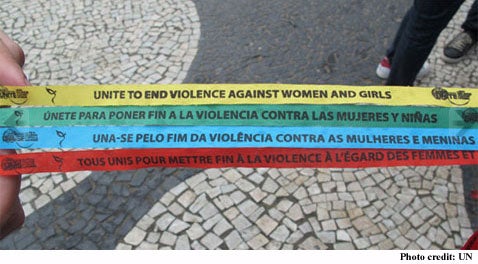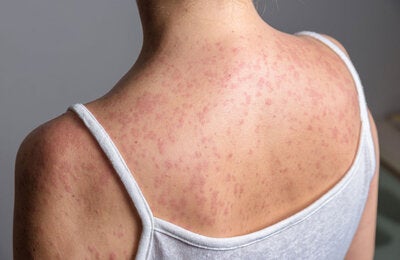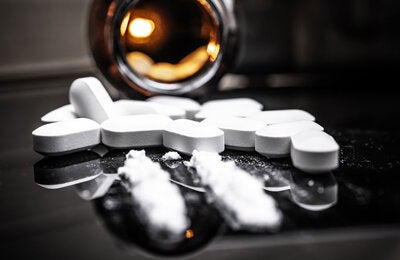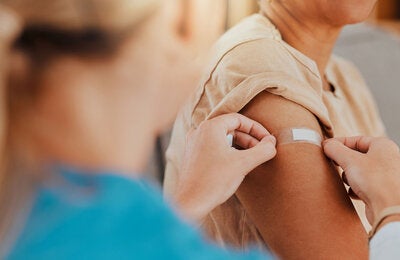

MTV Latin America and the United Nations Secretary General´s UNITE to end Violence against Women presented the initiative "Be Brave not Violent". The initiative is aimed at young people in Latin America and the Caribbean, with the...
MTV Latin America and the United Nations Secretary General´s UNITE to end Violence against Women presented the in Latin America and the Caribbean
MTV Latin America and the United Nations Secretary General´s UNITE to end Violence against Women presented the initiative "Be Brave not Violent". The initiative is aimed at young people in Latin America and the Caribbean, with the objective inspiring young people in the region to become part of the solution to end violence against women.

Propelled by UN Women, UNICEF, UNDP, UNFPA, and PAHO/WHO, "Be Brave not Violent" comes about in the midst of an alarming reality in the Americas. 29.8% of women are victims of physical and/or sexual violence at the hands of their partner and 10.7% have suffered sexual violence committed by a stranger.
Physical or sexual violence is a public health problem that affects more than one third of all women globally, according to a new report released by WHO in partnership with the London School of Hygiene & Tropical Medicine and the South African Medical Research Council last June. Some 35% of all women will experience either intimate partner or non-partner violence. The study finds that intimate partner violence is the most common type of violence against women, affecting 30% of women worldwide.
The initiative makes a call to adolescents to be brave and carry out extraordinary acts of valor within their homes, schools and communities. These actions can be small and simple and encompass their day to day realities. The call asks young people to help break stereotypes and change macho behaviour or attitudes that can provoke or justify violence against women and girls.
Furthermore, there is a specific focus on young men to rethink the meaning of 'being brave' and crafting a new sense of their own masculinity by encouraging them to carry out positive actions towards ending against violence against women and girls. To do this, there will be regional and national activities where a space will be provided for children and youth to give new meaning to the idea of 'being a man'. Such actions will help turn these young people into partners in the effort to eradicate this violence and increase their awareness of the zero tolerance mentality necessary in these situations.
A call to young people in Latin America and the Caribbean
As part of today's presentation, ´Be Brave not Violent', UN Women Director for the Americas and the Caribbean, Moni Pizani called on the youth of Latin America to come together to end violence against women and girls. "Courage makes the impossible possible, and so we ask you: show us your bravery, be our agents of change, help us to change those terrifying statistics of the thousands of women and girls who are victims of violence," she said.
UNICEF Regional Director for Latin America and the Caribbean, Bernt Aasen, stressed that to end violence against women not only does the current generation of men and women need to be reached, but also children and adolescents. "To prevent and eliminate such violence requires involving men from childhood to change their perceptions and stereotypes," he said. He supported the idea that in efforts to prevent and end violence against women and girls, "young boys are essential so that girls and women can live in a world that guarantees them exercise of their rights without any discrimination."
The Regional Director, of UNDP for Latin America and the Caribbean, Freddy Justiniano, also emphasized the role of youth when examining the current data in the region which shows that Latin America nad the Caribbean region is one of the most violent and insecure in the world. "We know it is you, the young men and women, who can make a radical change to this situation and build a nonviolent and egalitarian future society. The world has seen that you have the power to change society. And the region needs you", he told youth.
The Director of the Regional Office of UNFPA for Latin America and the Caribbean, Marcela Suazo, said "diverse international agreements, including the Programme of Action of the ICPD (1994) establish that preventing and addressing violence against women requires the participation of adult men, adolescents and children as allies in promoting individual and collective attitude changes, beliefs and behaviors that reinforce violence as an indicator of masculinity and sexual risk taking as an indicator of "manliness".
The Director of the Pan American Health Organization (PAHO), Dr. Carissa F. Etienne, was also convinced that "the youth of our region and each one in particular, can play an essential role in the prevention and reduction of violence in all Member States".
'Be Brave not Violent' was presented yesterday at a party organized with the support of the Municipality of Quito, Ecuador. During the ceremony, the MTV DJ Mauricio Parra revealed a contest that asks the youth of the region to submit original and creative proposals to end violence against women and girls in different areas including sport, theatre, music andsocial media. The winning project will be highlighted in a profile of MTV Agents of Change.
More information:
Facebook
Twitter
About the UNITE campaign
The Secretary General of the United Nations, Ban Ki-moon, launched the global campaign UNITE to end violence against women in 2008. Through it, Ban highlights the need for efforts to prevent violence against women, to go beyond merely raising awareness of the male population, to promote a change in attitudes towards egalitarian, non-violent societies that incorporate men as part of the solution and not just the problem. At the launch, he noted that "violence against women is never acceptable, never excusable, and never tolerable".Links:



